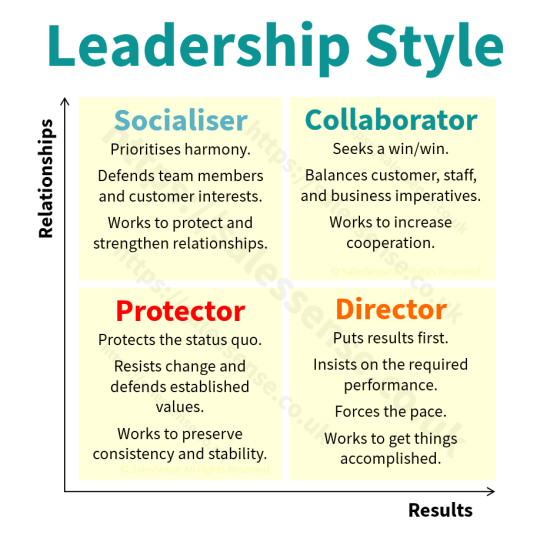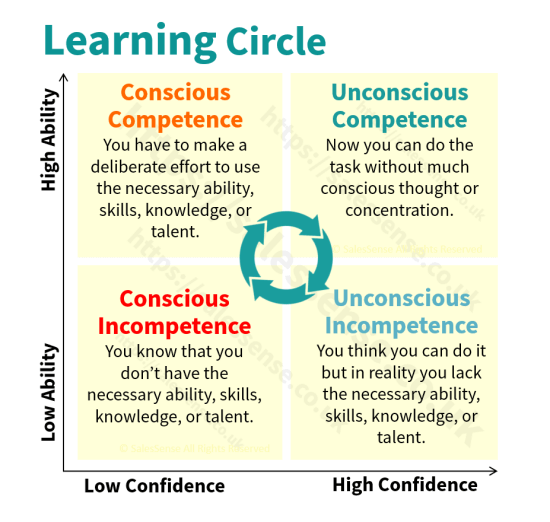Become a better manager with our free sales management assessment.

Is getting a sales team to perform tougher than expected? Complete this sales management assessment in 5 to 10 minutes. Use it to guide learning, plan study, support career development, or evaluate competence.
The results are presented at the bottom of this page as you enter scores.
How do you assess a sales manager?
Use our sales management assessment to select questions and use them in an interview.
Invite candidates for sales management roles to take the assessment, then use the results to guide an interview.
Validate answers with the validation questions or use our grading or validation service.
Rate sales management skills using the sales management competence statements in the assessment.
Identify strengths and weaknesses, opportunities and vulnerabilities.
Complete the assessment from the perspective of anyone you know well to assess their sales management knowledge, skills, and habits.
Use what you learn to guide learning, plan study, and drive development.
Assessment Instructions:
Use our sales management assessment to score yourself or anyone you know well on the knowledge and fact statements below. Enter a score between 1 and 10 in the boxes adjacent to each statement.
Score according to the degree of truth in each statement.
For example, give yourself a high score if you can already teach others how to accomplish the thing expressed in a statement. Enter a middling score if you can think of a few ways to achieve the outcome. Give yourself a low score if you are unsure how to get the thing done or achieve the result.
Answer the validation questions in your mind to check the accuracy of your self-assessment score.
Make your score reflect reality.
The data is not recorded so you only have yourself to mislead.
Your total score and a chart showing your strengths and weaknesses will be updated at the bottom of the page as you enter your scores. Your sales management assessment chart is discarded as soon as you navigate away from the page.
Expert Product: 1. I have expert knowledge of my organisation’s products, solutions, and services. Validation Question: To what extent can you recite all the important features and benefits; describe use cases, and relate customer success stories in each case? | |
Expert Differences: 2. I understand how my organisation's offering is different from competitive offerings and can explain the differences in two or three sentences. Validation Question: To what extent can you confidently express three succinct, compelling and satisfying explanations of how everything you sell is different from all the other similar offerings? | |
Expert Sales: 3. I know what sales team members must know, be able to do, and should habitually do to be sure of achieving their sales target. Validation Question: To what extent could you prepare a comprehensive sales competence model that was sufficiently detailed to serve as a training and development guide? | |
Expert Market: 4. I know the market size and its rate of change for our products, services, and solutions in the sales territories and accounts that my team are required to sell into. Validation Question: To what extent do you know the market size and its rate of change for your products, services, and solutions in all the sales territories and accounts that your team are required to sell into? | |
Recruiter Spec: 5. I know how to write easy-to-read sales job specifications that guide agencies, attract the right candidates, and discourage unsuitable applicants. Validation Question: How many sales job specifications have you written and how effective were they? | |
Recruiter Source: 6. I know how to find and entice good candidates to fill sales positions and can do this without resorting to paid advertising or recruitment services, if necessary. Validation Question: How many sales positions have you filled using only your network and without the support of paid services? | |
Recruiter Exclude: 7. I know how to quickly filter candidate applications for inconsistencies, obfuscations, misrepresentations, and miss-matches. Validation Question: What methods do you use to systematically and reliably exclude candidates who are unlikely to succeed in your team, based on their CV or job application? | |
Recruiter Interview: 8. I know how to interview sales job candidates in a manner that causes them to reveal any misrepresentations in their CVs or applications. I am also able to test candidates for the knowledge, skills, habits, and cultural compatibility that is necessary for a person to succeed in the sales role they are applying for. Validation Question: What methods do you use to exclude unsuitable sales job applicants at the interview stage, based on their tested honesty, knowledge, skills, habits, and cultural compatibility? | |
Organiser Quota: 9. Every quota-carrying member of my team has an agreed sales revenue and profit target together with a compensation plan that details performance expectations and key performance indicators covering at least the next six months. Validation Question: How many times each year do you review performance against quota on a one-to-one basis with each member of your team? | |
Organiser Plan: 10. All quota-carrying salespeople in my team have a current credible plan detailing how they will achieve their profit and revenue target in each measurement period looking forward at least six months. Validation Question: How many times each year do you review target achievement plans on a one-to-one basis with each member of your team? | |
Organiser Forecast: 11. All quota-carrying salespeople on my team have a current sales forecast listing all qualified sales opportunities being worked on together with the stage of progress through each customer's buying process, the value of each forecasted sale, the expected close date, and a quantified probability of success. Validation Question: How accurate are your sales forecasts? | |
Organiser Appraisal: 12. I maintain a formal appraisal document for every member of my team. I ensure that it is updated every three months to show current data for key performance indicators including performance against revenue and profit targets, sales forecast accuracy, sales target achievement plan maintenance, any required corrective actions, and recommended development actions. Validation Question: How much time do you spend on one-to-one reviews and appraisals each month? | |
Strategist: 13. I have a clear understanding of strategy and how it is used to guide the tactics and actions of team members in pursuit of a goal or objective. Validation Question: What is the purpose of strategy? | |
Strategist Planning: 14. I can explain how strategy is distinct from a plan and how it is used as part of a plan, to guide implementation. Validation Question: How is strategy different from a plan? | |
Strategist Testing: 15. I know how to assess the effectiveness of any strategy. Validation Question: How do you assess the effectiveness of a strategy? | |
Strategist Competition: 16. I know how to use strategy to win business against superior competitors. Validation Question: Are you able to reliably anticipate a competitor's strategy? | |
Communicator Listening: 17. I understand how the mind filters out information and selects what we have in mind to hear. I know how to counter this tendency and listen attentively when I need to. I make use of specific techniques to enhance my listening skills. Validation Question: What techniques do you use to enhance your listening? | |
Communicator Questioning: 18. I have very good questioning skills and find it easy to have team members reveal the truth, even when it would expose their oversights, omissions, and mistakes. Validation Question: What questioning techniques do you use to reveal the truth when a team member is trying to hide it? | |
Communicator Reading People: 19. I am very good at reading people - picking up on clues about their inner thoughts - even when they are skilled at hiding them. Validation Question: What do you look for when you suspect that you are being misled or lied to? | |
Communicator Persuasion: 20. I am very good at persuading people to do the right things without having to tell them what to do. Validation Question: What techniques do you use to cause people to decide to do what you want them to do? | |
Motivator Motivation: 21. I understand the differences between intrinsic and extrinsic motivation. Validation Question: What are your strongest intrinsic motivators? | |
Motivator Recognition: 22. I know how to recognise an individual's intrinsic motivators. Validation Question: What are the most common intrinsic motivators? | |
Motivator Leverage: 23. I leverage people's intrinsic motivators to maximise their job satisfaction and maintain their enthusiasm for the work. Validation Question: What are the low-cost or no-cost things that you do to improve the motivation of team members? | |
Motivator Admonishment: 24. I am able to deliver admonishments in a manner that motivates recipients to react in a positive way, learn what can be learned, and deal with the issue effectively. Validation Question: What is the method you use to deliver motivating admonishment? | |
Coach or Trainer: 25. I understand the differences between coaching and training. Validation Question: Can you list five important differences between coaching and training? | |
Coach Developer: 26. I am very good at getting team members to recognise their strengths, weaknesses, and personal development opportunities. Validation Question: What is the best way to have someone discuss their weaknesses? | |
Coach Finesse: 27. I am very good at coaching team members without drawing attention to the process or referring to it as coaching. Validation Question: What is the most effective way to have someone change their behaviour? | |
Coach Formal: 28. I know how to establish a formal remedial coaching programme that succeeds and do so when it is necessary. Validation Question: What are the characteristics of a formal remedial coaching programme? | |
Problem Solver: 29. I am able to lead members to solve their own difficult problems without relying on my intervention. Validation Question: What do you do to avoid taking on the problems brought to you by subordinates? | |
Problem Solver Coach: 30. When team members are struggling to solve a problem, I coach them in the use of problem-solving methods to find a way forward. Validation Question: What problem-solving methods do you teach? | |
Problem Solver Prophet: 31. I am very good at estimating, anticipating, or predicting the outcome of a series of actions or the output of systems based on known or estimated inputs. I am often able to predict what will happen as a result of a given set of events. Validation Question: What is it that you do that makes your future predictions more accurate than those of others? | |
Problem Solver Groups: 32. I am very good at leveraging the power of groups to solve difficult problems. Validation Question: How do you get a group to solve difficult problems? | |
Leader Example: 33. I ask more of myself than anyone else would. Validation Question: What drives you to sacrifice your time and energy? | |
Leader Ask: 34. I ask more of the people in my team than anyone else would. Validation Question: Why do people do more for you than anyone else? | |
Leader Interest: 35. I take a personal interest in the well-being of every member of my team. Validation Question: What do you do with any personal information that you discover? | |
Leader Feedback: 36. I am interested in obtaining feedback from team members customers, managers, and peers and I use what I learn to improve my management and leadership practices. Validation Question: What have you changed about your management style or practices as a result of feedback? | |
| Total Sales Management Assessment Score |
Sales Management Assessment Score Guide
If your total score for the sales skill assessment is over 300, could you have been overly optimistic in your assessments? Whatever your scores, the chart reflects strengths and weaknesses. Working on strengths can be very rewarding. Weaknesses can sometimes be ignored if they are not causing others to perceive incompetence.
Don't leave it here. Decide your next steps. Action is the key.
Consider these suggestions:
- Decide what you want to improve and make a plan. How to Get Better at Anything
- Review our management and leadership articles.
- Set up a regular coaching arrangement. Management Coaching Benefits
- Schedule a call with Clive Miller for an informal review (free) or a structured review.
- Use our assessment grading or validation service. Assessment Grading.
- Take our Management course to strengthen your strengths and address weaknesses.
- Score the effectiveness of your sales organisation with this assessment.
No data entered on this page is recorded so if you want to keep your scores, save the chart to your device. For PC's, right-click on the chart and select save-as. For mobiles, take a screenshot.
If you have found this sales management assessment useful, add a comment below to encourage others.

Applications Include:
- Sales Management Skills Assessment
- Learning and Development Guidance
- Training Needs Analysis
- Interview Preparation
- Sales Manager Selection
- Career Planning
Sales Management Assessment Aspects
- Expert
- Recruiter
- Organiser
- Strategist
- Communicator
- Motivator
- Coach
- Problem Solver
- Leader
If you are looking for a sales management assessment or a way to conduct a sales manager training needs analysis, this assessment offers a readily accessible solution. For coach validation, assessment facilitation, or sales training services, telephone +44 (0)1392 851500. Alternatively, email jimm@salessense.co.uk or use the contact form here.






















